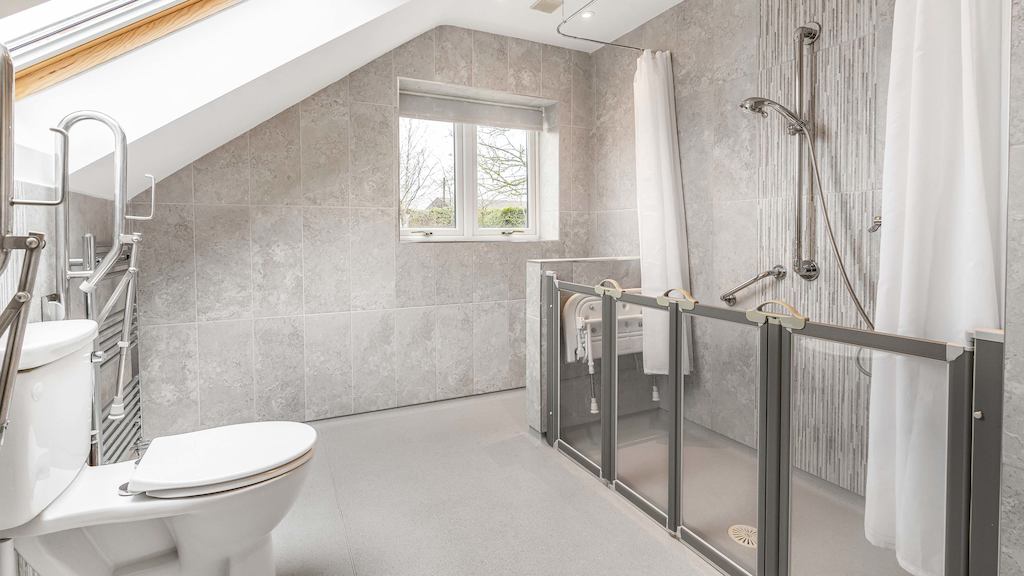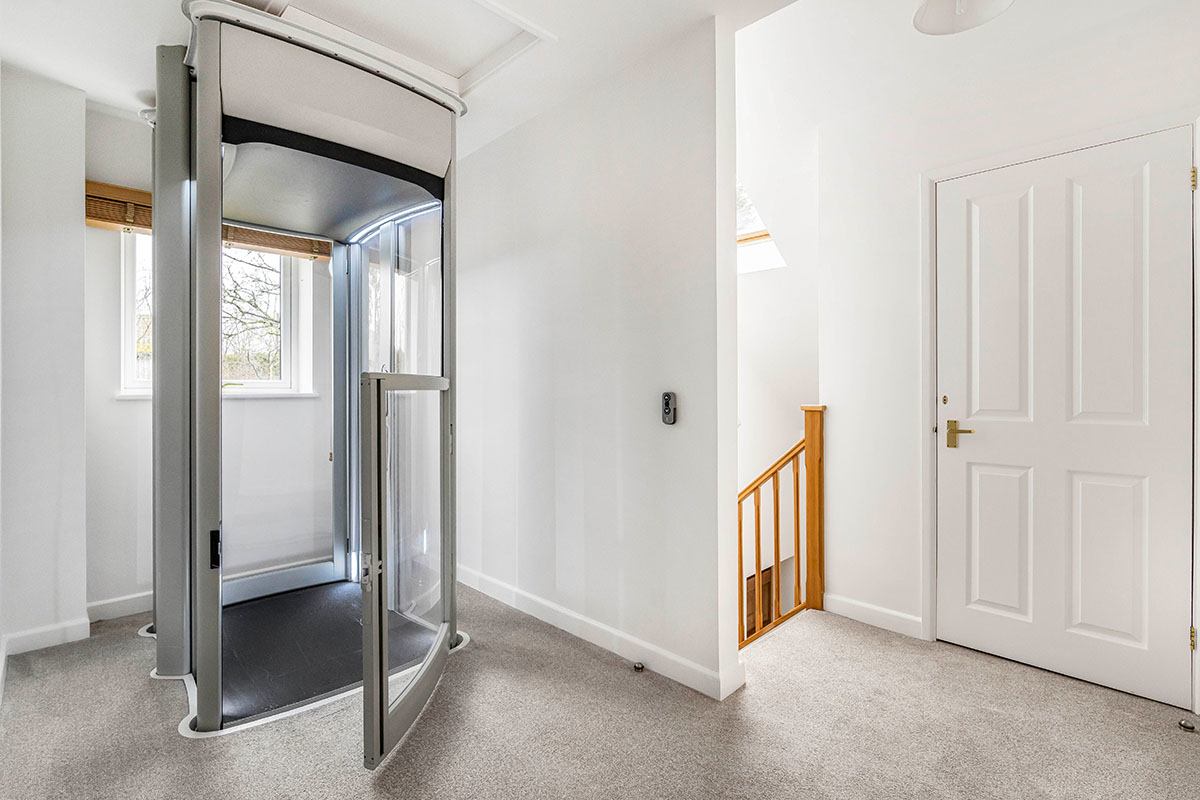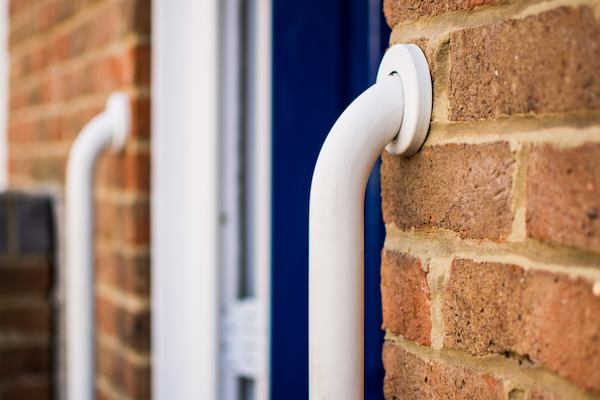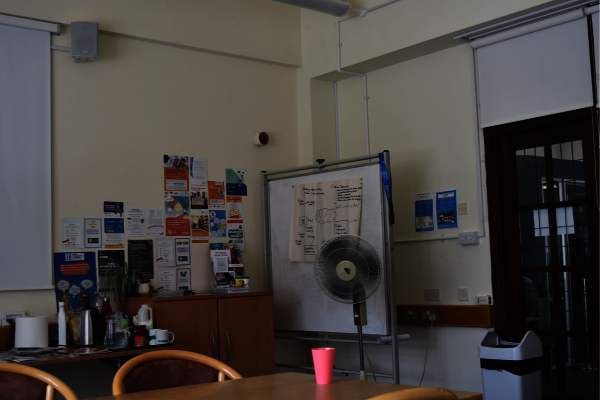Julie and Peter's story - The journey for an accessible home

There is a market out there for accessible housing and the run of the mill estate agents are ignoring it. It’s difficult enough for people that need accessible housing anyway. Even new properties are not being built with accessibility in mind. And it’s a crying shame.
Julie and her husband Peter live in Bibury, in the Cotswolds. They purchased their current house in 2018 when Julie’s parents, Rita and Ronald, moved in with them following a struggle to live in their own home whilst experiencing declining health.
Julie and Peter converted the garage of the house into a two-bedroom accessible home for Julie’s parents.
Six years on, now that Julie’s parents have passed away, Julie and Peter are looking to rent out their former home. Now, they share with us their struggles of not only making Julie’s parents’ property accessible but trying to rent it to someone with accessibility needs.
Since retiring in 2015, Julie and her husband Peter had been actively supporting Julie’s parents, Rita and Ronald, through their challenges living at home with dementia and Parkinson’s, respectively. Following a series of accidents and late-night visits to the hospital, it was decided that Rita and Ronald would move in with their daughter and her husband.
Eventually the thing that pushed them to move over to us was the fact mum had a fall – she tripped over a small stool and broke five ribs…there was no way [Ronald] could be left on his own.
After several years searching for the right property, they bought a house in Bibury in September 2018 that had a garage that could be converted into an accessible home for Julie’s parents. Building work started immediately after purchasing the house, and Rita and Ronald were able to move in, in February 2019.
“Dad was delighted. He could not have been happier. He loved the country, he could see the birds, he could get out on his mobility scooter which he did every day, and he was very happy to be here.”
Rita however struggled more with the changes. “My mum was not a country girl, she was more of a townie and she had dementia. The doctor explained to us, her home was always going to be the house she had spent most of her life in, so she would never accept this was her home. That was difficult for my dad and I think it made things difficult for us. I think my mother had everything she needed and nothing she wanted. As for us, we were just exhausted.”
While experiencing relief at the fact that her parents could be looked after and were able to take part in more daily activities than in their previous home, for example with Ronald able to get outdoors more easily on his mobility scooter, Julie and Peter reflected on the stressful experience of converting the house. "It was a slog. None of the builders or plumbers had experience in fitting accessibility products and they found it difficult. They had to keep asking questions and we had to keep finding things out from the manufacturers and there was lots of to-ing and fro-ing into how it should all be fitted.”

As well as the challenges around expertise in working with accessibility products, costs were also an issue.
“Everything is that much more expensive when you prioritise accessibility. It's like putting wedding before cake. If you want cake, it's going to cost a few quid. If you go out and buy wedding cake, it's going to cost you a few hundred quid.”
“We had to negotiate really hard to get prices down and that was before COVID. If I had bought the same kitchen without accessibility functions it wouldn’t have cost us nearly the same.”
Julie and Peter said it would have been helpful to have somewhere to go to seek out advice on how to make their home more accessible.
“It’s the same struggle that we’re having even today. Every March there is an exhibition for disabled people at the NEC – and what you need is one of those when you need it, not one of those in March. We needed it in September or August when we were starting out on the work and of course it wasn’t there. And you search the internet, and you ring people and they say “oh no that’s not us” or “oh no you need this” and it’s just difficult, really, really difficult. You can spend and lose days researching.”
When Julie’s father passed away at the end of last year following Rita’s death, the couple decided to rent the house out to someone else with accessibility needs.
This was because they understood the challenges individuals with disabilities face when trying to buy or rent accommodation. This was particularly relevant because the occupational therapist that visited previously commented that the house would be good for people who are rehabilitating from car accidents or living with neurological issues.
“We want it to be used for what it was intended and for the facilities within it to be utilised.”
However, they quickly realised that the value of an accessible property was not recognised by the estate agents they were speaking to.
“Every estate agent we’ve been to, the agent has turned around and said what you need to do is take the lift out, take the kitchen away, remove all the resources you have for disabled people and then it will be marketable for us. They are not interested in actually getting into a market, but we know there is a market out there for people with disabilities.”
In their research, they have found some companies that specialise in renting out properties to disabled people, but at the moment this isn’t widespread enough. They believe there shouldn’t be different approaches needed for those with and without disabilities.
They hope that in time more people will see the value of this market and more care will be taken to build all housing to full accessibility standards for everyone.


